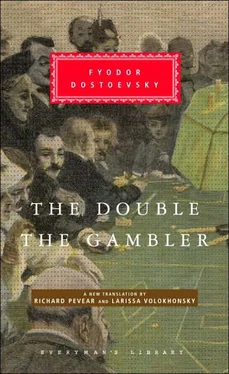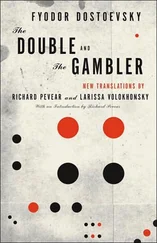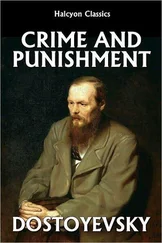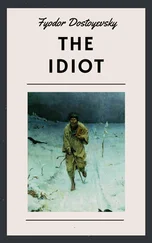Fyodor Dostoevsky - The Double
Здесь есть возможность читать онлайн «Fyodor Dostoevsky - The Double» весь текст электронной книги совершенно бесплатно (целиком полную версию без сокращений). В некоторых случаях можно слушать аудио, скачать через торрент в формате fb2 и присутствует краткое содержание. Жанр: Классическая проза, на английском языке. Описание произведения, (предисловие) а так же отзывы посетителей доступны на портале библиотеки ЛибКат.
- Название:The Double
- Автор:
- Жанр:
- Год:неизвестен
- ISBN:нет данных
- Рейтинг книги:4 / 5. Голосов: 1
-
Избранное:Добавить в избранное
- Отзывы:
-
Ваша оценка:
- 80
- 1
- 2
- 3
- 4
- 5
The Double: краткое содержание, описание и аннотация
Предлагаем к чтению аннотацию, описание, краткое содержание или предисловие (зависит от того, что написал сам автор книги «The Double»). Если вы не нашли необходимую информацию о книге — напишите в комментариях, мы постараемся отыскать её.
Poor Folk.
The Double
The Double — читать онлайн бесплатно полную книгу (весь текст) целиком
Ниже представлен текст книги, разбитый по страницам. Система сохранения места последней прочитанной страницы, позволяет с удобством читать онлайн бесплатно книгу «The Double», без необходимости каждый раз заново искать на чём Вы остановились. Поставьте закладку, и сможете в любой момент перейти на страницу, на которой закончили чтение.
Интервал:
Закладка:
“You…allow me to ask, by what chance do I have the honor…”
“Knowing your magnanimity and your virtues,” his guest interrupted promptly, but in a timid voice, rising slightly from his chair, “I have ventured to turn to you and ask for your…acquaintance and patronage…” his guest concluded, obviously finding his expressions with difficulty and trying to choose words that were not too obsequious and humiliating, so as not to compromise himself in respect to his pride, nor too bold, smacking of indecent equality. In general, it could be said that Mr. Goliadkin’s guest behaved like a noble beggar in a patched tailcoat and with a noble passport in his pocket, not yet properly practiced in holding out his hand.
“You embarrass me,” replied Mr. Goliadkin, looking around at himself, his walls, his guest. “Is there anything I can…that is, I mean to say, precisely in what respect can I be of service to you?”
“I, Yakov Petrovich, felt drawn to you from the first glance and, be so magnanimous as to forgive me, I venture to place my hopes in you—my hopes, Yakov Petrovich. I…I am a forlorn man here, Yakov Petrovich, a poor man, I’ve suffered greatly, Yakov Petrovich, and I’m still new here. Having learned that you, with all the ordinary, innate qualities of your beautiful soul, are also my namesake…”
Mr. Goliadkin winced.
“…my namesake, and originating from the same parts as me, I decided to turn to you and explain to you my difficult situation.”
“Very well, sir, very well; really, I don’t know what to tell you,” Mr. Goliadkin replied in an embarrassed voice. “After dinner we’ll have a talk…”
The guest bowed; dinner was brought. Petrushka set the table, and guest and host together began to satiate themselves. Dinner did not take long; both men were hurrying—the host, because he was not quite himself and, besides, was embarrassed about the bad dinner—embarrassed partly because he wanted to feed his guest well, and partly because he wanted to show that he did not live like a beggar. The guest, for his part, was extremely embarrassed and extremely abashed. Having taken the bread once and eaten his slice, he was now afraid to reach for a second slice; he was ashamed to take the better pieces, and insisted every moment that he was not at all hungry, that the dinner was excellent, and that he, for his part, was completely satisfied, and would be sensible of it to his dying day. When the eating was over, Mr. Goliadkin lit his pipe, offered another, kept for friends, to his guest, the two sat down facing each other, and the guest began recounting his adventures.
Mr. Goliadkin Jr.’s account went on for three or four hours. The story of his adventures was, however, made up of the most empty, the most puny, if one may say that, of circumstances. It was a matter of working somewhere in a provincial government office, of some prosecutors and chairmen, of some bureaucratic intrigues, of the depraved soul of one of the chief clerks, of an inspector, of a sudden change of superiors, of Mr. Goliadkin-the-second suffering quite blamelessly; of his elderly aunt, Pelageya Semyonovna; of how, owing to various intrigues of his enemies, he lost his post and came on foot to Petersburg; of how he languished and suffered grief here in Petersburg, how he sought work fruitlessly for a long time, spent all his money, ate up all his food, lived almost in the street, ate stale bread, washing it down with his tears, slept on a bare floor, and, finally how one good man undertook to solicit for him and magnanimously set him up in a new job. Mr. Goliadkin’s guest wept as he told it all, and wiped his tears with a blue checked handkerchief that greatly resembled oilcloth. He concluded by opening himself completely to Mr. Goliadkin and confessing that, for the time being, he not only did not have enough to live on and set himself up decently, but could not even outfit himself properly, and that he had borrowed a uniform from someone for a short time.
Mr. Goliadkin was moved to tenderness, was genuinely touched. However, and even despite the fact that his guest’s story was of the emptiest sort, every word of this story lay on his heart like heavenly manna. The thing was that Mr. Goliadkin was forgetting his last doubts, he unbound his heart for freedom and joy, and finally bestowed on himself the title of fool. It was all so natural! And what cause was there to lament, to raise such an alarm? Well, there is, there actually is this one ticklish circumstance—but there’s no harm in that: it can’t besmirch a man, stain his ambition, and ruin his career, if it’s not the man’s fault, if nature itself has mixed into it. Besides, the guest asked for protection, the guest wept, the guest blamed fate, he seemed so artless, without malice or cunning, pathetic, insignificant, and, it seemed, was now ashamed himself, though perhaps in another connection, of the strange likeness of his own and his host’s face. He behaved himself with the utmost propriety: all he was looking to do was to please his host, and he looked the way a man looks who is tormented by remorse and feels himself guilty before another man. If the talk, for instance, got on to some doubtful point, the guest at once agreed with Mr. Goliadkin’s opinion. If, somehow by mistake, he expressed an opinion that went counter to Mr. Goliadkin’s and then noticed that he had gone astray, he at once corrected his speech, explained himself, and made it known immediately that he understood it all just as his host did, his thoughts were the same as his, and he looked at it all with exactly the same eyes as he. In short, the guest made every possible effort to “seek after” Mr. Goliadkin, so that Mr. Goliadkin decided finally that his guest must be a highly obliging man in all respects. Meanwhile, tea was served; it was past eight o’clock. Mr. Goliadkin felt himself in excellent spirits, became cheerful, playful, let himself go a little, and finally launched into a most lively and entertaining conversation with his guest. Mr. Goliadkin, when in a jolly mood, occasionally enjoyed telling some interesting story. So it was now: he told his guest a great deal about the capital, its amusements and beauties, the theater, the clubs, Briullov’s painting; {20} 20 Karl Pavlovich Briullov (1799–1852), leader of the Russian Romantic school of painters, finished his most famous painting, The Last Day of Pompeii , in Italy in 1833; in 1834 it was brought to Russia and exhibited at the Academy of Fine Arts in Petersburg, where it met with great public admiration and critical acclaim.
about two Englishmen who came on purpose from England to Petersburg in order to look at the fence of the Summer Garden, and then left at once; about the office, about Olsufy Ivanovich and Andrei Filippovich; about the fact that Russia was hourly moving towards perfection, and that here
The art of letters flourisheth today; {21} 21 A line from the eighteenth-century Russian poet A. P. Sumarokov (1717–77) in the prologue “New Laurels,” written for a ballet performed on the occasion of Catherine the Great’s birthday in 1759.
about a little anecdote he had read recently in the Northern Bee , {22} 22 The Northern Bee was a reactionary newspaper edited by Faddey Bulgarin (1789–1859) and Nikolai Grech (1787–1867). Bulgarin was also a bad novelist and a police spy who specialized in denouncing literary figures, Pushkin among them.
and that in India there was a boa snake of extraordinary strength; finally, about Baron Brambeus, {23} 23 The pen name of O. I. Senkovsky (1800–58), critic and writer, publisher of the collection “Library for Reading.”
and so on, and so forth. In short, Mr. Goliadkin was fully content, first, because he was perfectly at ease; second, because he not only was not afraid of his enemies, but was now even ready to challenge them all to a most decisive battle; third, because he, in his own person, was offering patronage and, finally, was doing a good deed. In his soul, however, he acknowledged that he was not yet entirely happy at that moment, that there was one little worm still sitting in him—a very little one, however—and gnawing at his heart even now. He was greatly tormented by the recollection of the previous evening at Olsufy Ivanovich’s. He would have given much now if one thing or another of what had happened yesterday had not happened. “However, it’s all nothing!” our hero finally concluded, and he firmly resolved in his heart to behave well in the future and not fall into such blunders. Since Mr. Goliadkin had now let himself go completely and had suddenly become almost perfectly happy, he even decided to enjoy life. Petrushka brought rum and they put together a punch. Guest and host each drained a glass, then another. The guest turned out to be still more obliging and, for his part, showed more than one proof of his straightforwardness and happy character, was greatly concerned with Mr. Goliadkin’s good pleasure, seemed to find joy only in his joy, and looked upon him as his sole and true benefactor. Having taken a pen and a sheet of paper, he asked Mr. Goliadkin not to look at what he was going to write, and then, when he had finished, himself showed his host all he had written. It turned out to be a quatrain, rather sentimentally written—in a beautiful style and handwriting, however, and evidently composed by the obliging guest himself. The verses were the following:
Интервал:
Закладка:
Похожие книги на «The Double»
Представляем Вашему вниманию похожие книги на «The Double» списком для выбора. Мы отобрали схожую по названию и смыслу литературу в надежде предоставить читателям больше вариантов отыскать новые, интересные, ещё непрочитанные произведения.
Обсуждение, отзывы о книге «The Double» и просто собственные мнения читателей. Оставьте ваши комментарии, напишите, что Вы думаете о произведении, его смысле или главных героях. Укажите что конкретно понравилось, а что нет, и почему Вы так считаете.












